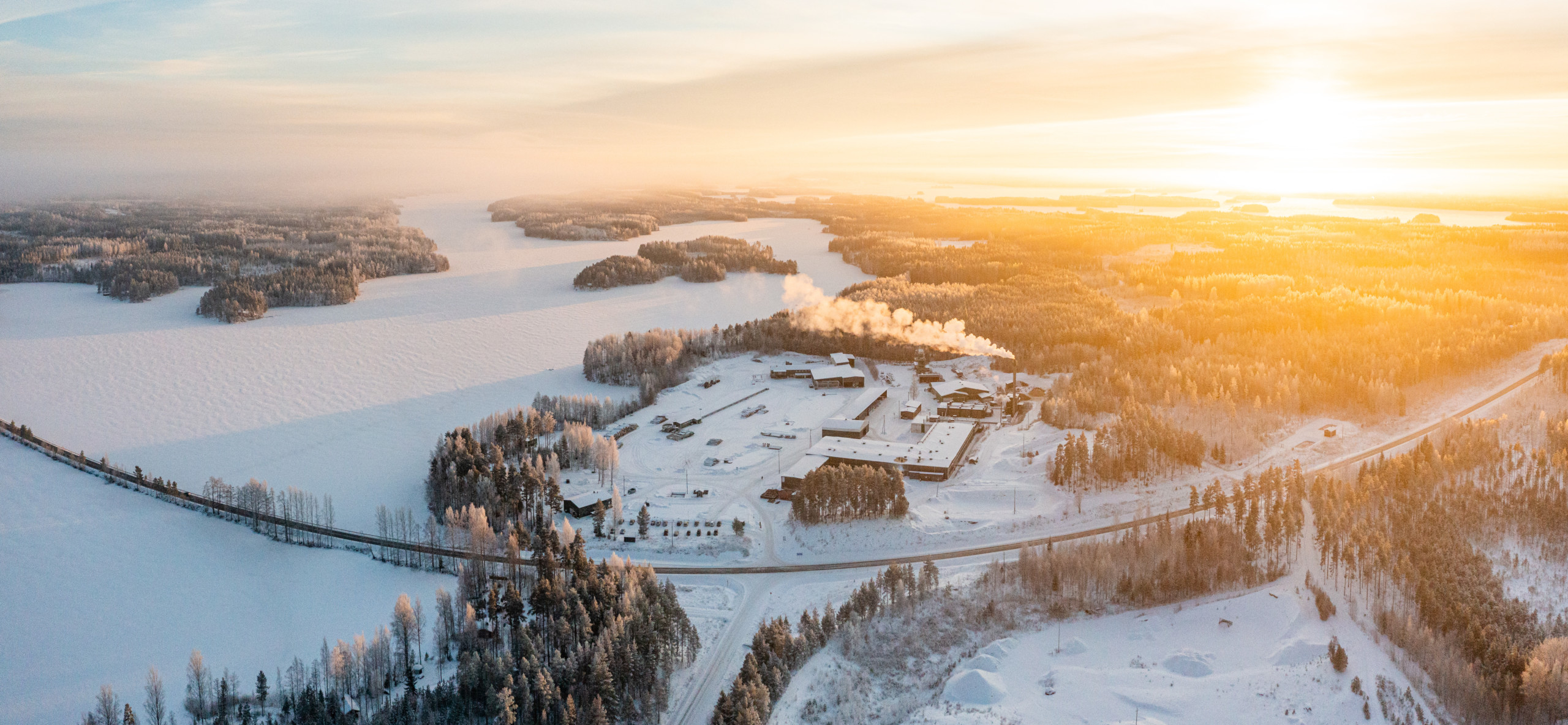
Main environmental aspects
The environmental aspects of our operations are updated annually.
n the Järvelä mill area, the main environmental aspects during normal operation relate to the airborne emissions from Koskisen’s own boiler plant (Konus reserve boiler) and Körting chip dryer of the chipboard mill, airborne emissions from production processes, cooling water and wastewater, and the airborne emissions from the boiler plants owned by Loimua, operating in the plant areas. In order to minimise the above-mentioned load factors, the plants’ operation is monitored in part continuously and in part through scheduled measurements, which help guarantee correct settings and trouble-free operation of the equipment.
During operational disturbances at Järvelä, the main environmental aspects are made up of possible oil and resin spills in different accident situations for which there are guidelines in place.
In addition to these environmental impacts, the company’s production activities generate noise. Measurements and assessments related to this have been performed during several years.
Wastewaters from the soaking basins of Koskisen’s operations in Hirvensalmi constitute the most significant environmental impact of Thin Plywood Industry. Since 2011, these wastewaters have been fed to Hirvensalmi’s municipal wastewater treatment plant.
In 2022, storm water drainage in accordance with the environmental permit requirements will be built in Koskisen’s Mäntsäläntie mill area.
Our goal: reducing waste and especially mixed waste
In order to minimise the amount of mixed waste, we sort our waste with care. The benefits of waste sorting are not only environmental but also economical.
In order to minimise the amount of mixed waste, we sort our waste with care. The benefits of waste sorting are not only environmental but also economical. We employ a separate collection scheme for several reusable and recyclable waste fractions, such as cardboard, paper and metal, the protective wrapping for sawn goods (PE plastic film) as well as discarded electrical and electronic equipment.
The hazardous waste produced by our operations is delivered to Fortum’s plants in Riihimäki for appropriate processing. The fractions classified as hazardous generated by our operations include waste adhesive, waste oil, fluorescent bulbs and batteries.
We provide instructions to our employees on eco-friendly travel
We want to take environmental aspects into account in our personnel’s travel. Employees travelling on behalf of the company use the most appropriate and inexpensive travel route and means of travel with respect to overall costs and performance of the task at hand. Business travel is significantly reduced by smooth online meetings.
We encourage our personnel to use public transport whenever possible. The location of our units makes the use of public transport challenging, while commuting is reduced in part by the opportunity to work remotely.
Some of our employees frequently need their own car to do their jobs. Company cars are acquired for these persons on the proposal of the head of the business. We have a company car policy to support the acquisition of company cars. According to the environmental aspects of the policy, low-consumption cars must be chosen as company cars.